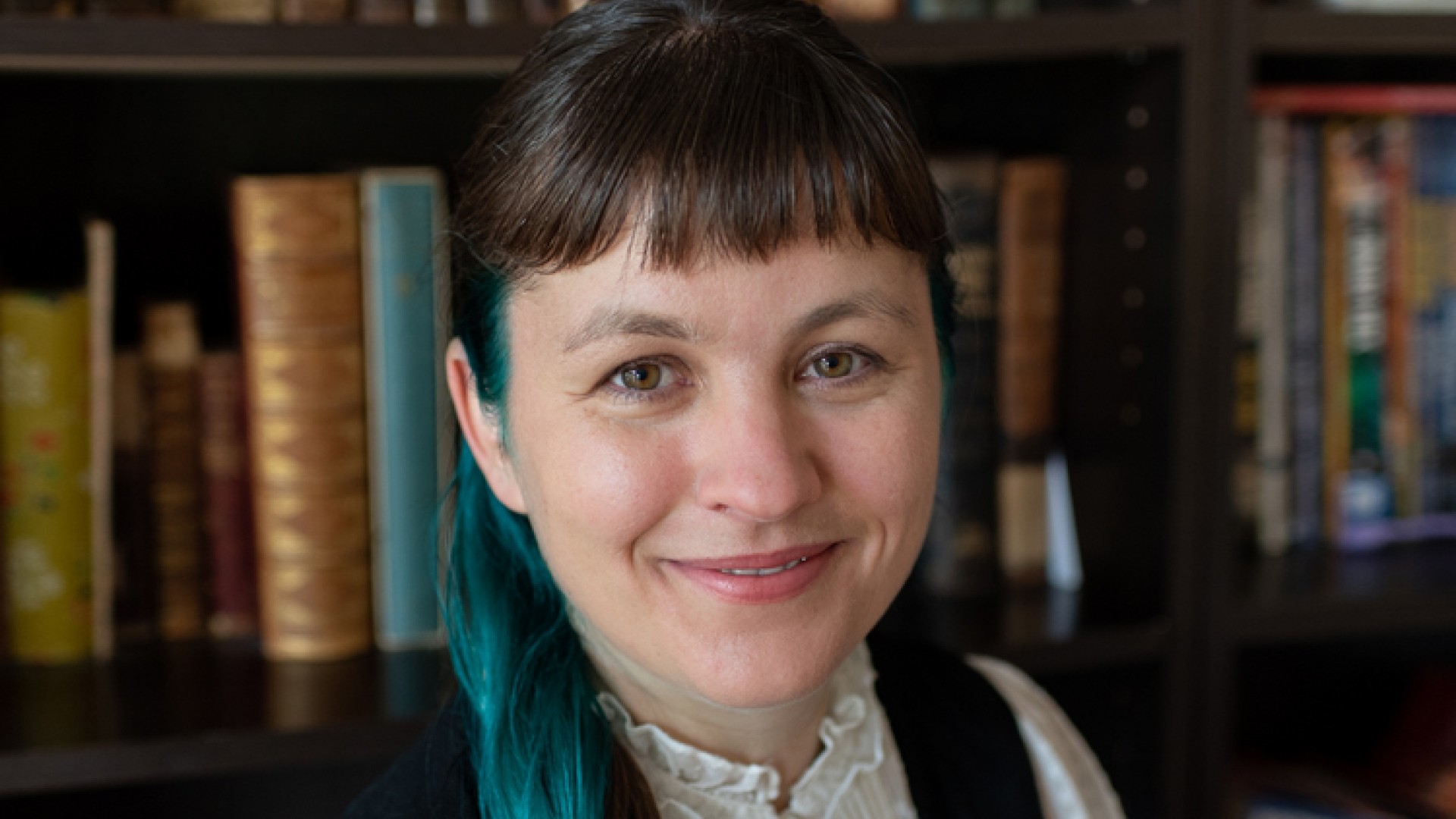
Dr. Laura Estill, Canada Research Chair in Digital Humanities and a professor of English at StFX, has been named one of the inaugural members of a new national Research Council for the National Digital Research Infrastructure Organization (NDRIO). She is one of two Atlantic Canada researchers successfully nominated to the council.
The NDRIO announced the selection of 22 multi-disciplinary researchers to its first Researcher Council, a critical component of NDRIO’s commitment to involve the research community as it designs and delivers a new service delivery model to support Canada’s national Digital Research Infrastructure (DRI) Strategy.
At StFX, the appointment was welcome news.
“Dr. Estill’s appointment to the new Research Council of NDRIO is important in that she represents the interests of researchers and scholars making use of advanced research computing technologies in the social sciences and humanities, as well as her ability to represent the interests of researchers from dozens of smaller undergraduate-oriented universities in Canada similar to StFX,” says Dr. Richard Isnor, StFX Associate Vice President, Research and Graduate Studies, who nominated Dr. Estill on behalf of StFX and ACENET. Dr. Isnor serves on the board of ACENET, which participates in interactions with NDRIO.
“This is also an important research leadership step in terms of the development of Dr. Estill’s Canada Research Chair program in Digital Humanities and her efforts to build research networks in this area both regionally and nationally,” Dr. Isnor says.
Dr. Estill says it is an honour to be a part of this team of incredible researchers and she looks forward to working to make Canada's digital research infrastructure as strong and accessible as possible.
“The Researcher Council's role is to make sure that the digital research infrastructure (DRI) needs of researchers across Canada are being met: this means accounting for diversity from a number of perspectives, including disciplinary, EDI, geographical, and more. I am one of two researchers who have been selected from Atlantic Canada; I am also one of two researchers from small, undergraduate-focused institutions,” she says.
Greg Lukeman, ACENET Chief Executive Officer, says the Researcher Council will play a critical role in ensuring the design and delivery of Digital Research Infrastructure services under NDRIO reflects the needs and diversity of Canada’s research.
"I am thrilled to have Laura as one of our two voices from Atlantic Canada on the council. ACENET has been lucky to work closely with her these past few years supporting the goals of her Canada Research Chair. This work is yielding an exciting expansion of ACENET's support to the Humanities and Social Sciences. I’m looking forward to continuing to work with Laura to make sure StFX and Atlantic Canada have the best possible digital research services and support."
Janet Davidson, OC, NDRIO Board Chair, says this impressive group of appointees is composed of strategic thinkers and visionaries who represent years of diverse research experience and expertise in advanced research computing, research software and data management.
“The contributions of this researcher-led group will be invaluable to the NDRIO Board and management as we work together on our researcher needs assessment, NDRIO’s first strategic plan and the growth of NDRIO.”
Researcher Council members will serve terms of up to three years with a maximum of two terms, subject to renewal after one year.
The first meeting of the Researcher Council is expected to take place in early October 2020.

